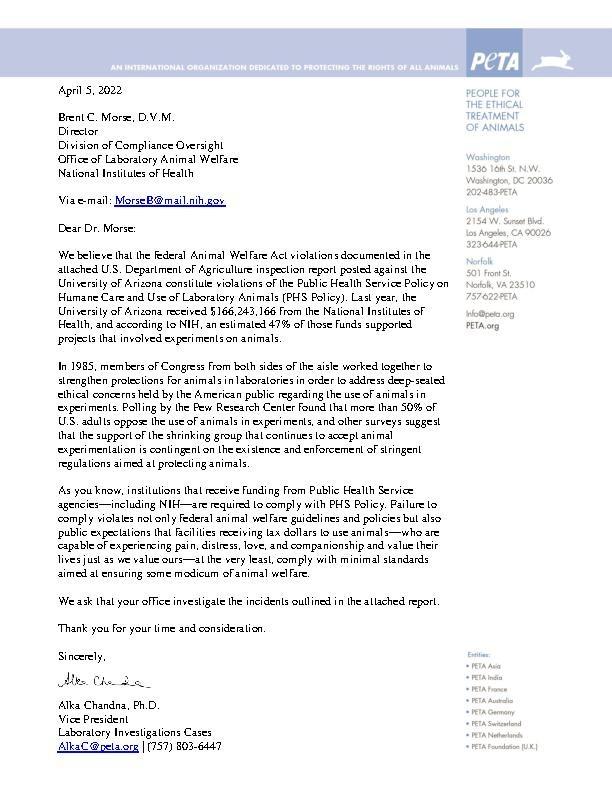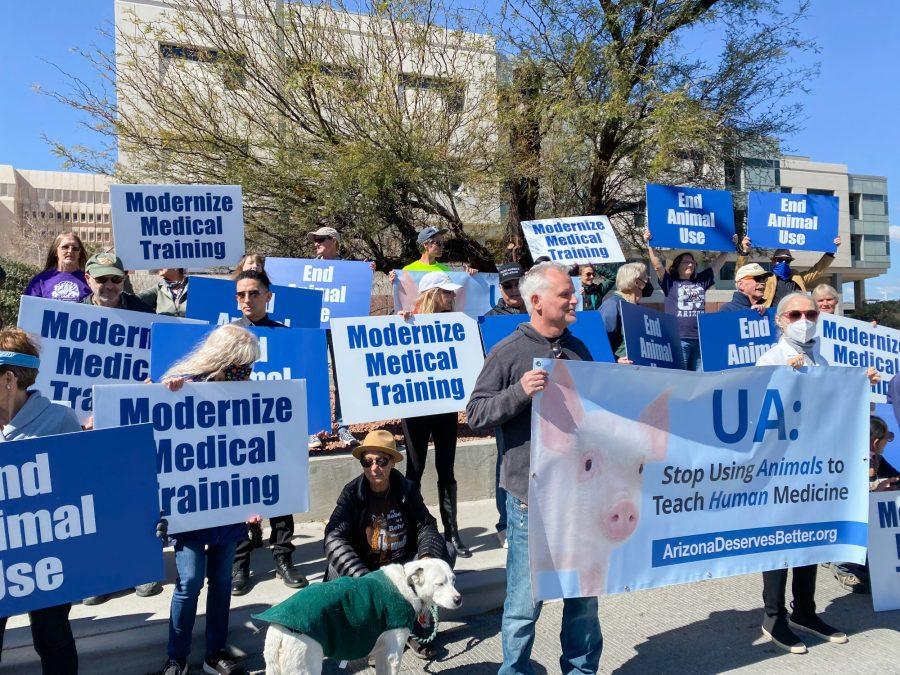The University of Arizona is facing renewed scrutiny regarding its treatment of animals.
The animal rights organization PETA – People for the Ethical Treatment of Animals – has filed a complaint to the National Institutes of Health against the UA for violations of federal animal welfare regulations.
The complaint calls on the NIH to investigate two separate incidents in which the United States Department of Agriculture documented the university for inadequate personnel training.

In the first incident, three lambs died after the animal care manager administered an incorrect dose of a solution containing levamisole and other medications, according to the USDA report. The lambs exhibited signs of acute toxicity, including muscle tremors, and died within 30 to 60 minutes after given the drug.
PETA Senior Vice President Kathy Guillermo said in a statement that this was “more than seven times the recommended dose” and “shows that the university shouldn’t be trusted with even one more penny of taxpayer funding for experiments on animals.”
The second incident involved a Mexican free-tailed bat that escaped from the hand of a research staff member and was somehow injured when the individual moved a large shelving unit while looking for it. The bat was euthanized immediately due to the injuries, according to the report.
The conclusion of the USDA inspection report suggested that the issue underlying both incidents was that the university personnel involved were not properly qualified to handle the animals.
As an institution that receives funds from Public Health Service agencies, the UA is also required to comply with the Public Health Service Policy on Humane Care and Use of Laboratory Animals. PETA alleges that the violations of the Animal Welfare Act also constitute violations of PHS policies.
Alka Chandna, vice president of laboratory investigations cases for PETA, specifically pointed out that institutions receiving federal funding are required to have an Animal Welfare Assurance, which is a document that stipulates how the institution intends to adhere to laws, guidelines, policies and principles related to the use and treatment of animals.
“In other words, there’s an expectation that a facility that receives federal money will train and instruct its employees on proper care and treatment of animals,” Chandna said.
Guillermo called on the university to “redirect its resources toward modern, non-animal research methods that will actually help humans,” as well as to adopt PETA’s research modernization deal. According to the organization’s website, the research modernization deal “maps out a strategy for replacing the use of animals in experiments with human-relevant methods.”
Pam Scott, associate vice president of external communications for the UA, provided the following statement to the Daily Wildcat:
“There was an unfortunate incident in which three sheep were given incorrect doses of a dewormer. Immediately upon learning of this error, the university followed its required timely procedures and filed a report with the USDA. The USDA inspected the facilities and interviewed staff and found no further concerns. The staff involved were provided additional training to help prevent this from happening again.”
This is not the university’s first rodeo with animal rights groups. On Feb. 24, protestors lined up outside the UA’s College of Medicine to protest the use of live pigs to practice invasive medical procedures in surgical training.
Follow Kristijan Barnjak on Twitter









